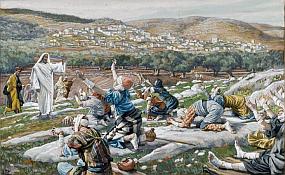 The old farmers and their Almanac got it right this year: Looks to be a cold, nasty winter.
The old farmers and their Almanac got it right this year: Looks to be a cold, nasty winter.
They called off school for my son—again. It’s just December, folks. Anytime school is off during December and it’s NOT the Christmas break, something is wrong. I know the state of Ohio mandates that schools close when 10 percent of the roads in a district are considered “impassable.” I know we live in a rural area where everyone seems to have a snowplow on his truck, yet the county is always behind in thoroughfare cleanup.
I know.
But when did a little frozen water become some kind of Kryptonite with a healthy dose of flesh-eating bacteria added for extra toxicity and gruesomeness? I mean, do people really melt into a gelatinous ooze should they venture outside and some tiny, six-pointed daggers of cold death rip them to shreds, slicing them down to the very cellular level?
It sure seems that way.
This weekend, I was out doing the most deadly job any 51-year-old male of suspect physical conditioning can do: shoveling snow. Peers, you know what I mean. Anyway, I somehow avoided a cardiopulmonary event, though there is a stitch in my side now and a troubling cough. I guess I better run for the bottle of NSAIDs and the Mucinex.
OK, so I’m tougher than some couch pilots, but I don’t feel like it. I feel like something vital has gone out of the American psyche when a gentle snowfall causes despair, and everyone is downing rainbow-colored handfuls of Advil, Aleve, and that stuff left over from that last kidney stone (you know, the GOOD stuff) just to make it through another day.
Meanwhile, our political helicopter parents on Capitol Hill are mandating ways to grant workman’s comp to the gal who got a paper cut while sorting files, or to the guy who accidentally ran a staple into his pinkie because the office bombshell walked by in THAT OUTFIT and he was too “distracted” to concentrate on connecting two sheets of paper together safely.
We pout when the grocery store is out of our favorite K-cup.
We whine when the Internet goes down.
We buy $1,000 North Face Everest Expedition parkas so we can endure a trip to the mall.
And yet we’ve never had more superheros in the cineplex or grittier protagonists in our TV programming, people who seem less and less like us even as we spend more and more time and money watching them fight The System, The Unseen Evil, The Alien Threat, The Future Scourge of Humanity, or whatever The Opposition of the Moment might be.
Here’s the spiritual takeaway: a coddled Church is useless. When it comes down to comfort or Christianity, we’re choosing the former while we talk up the latter.
Worse, the peer pressure is so strong that we can’t even support those who eschew comfort and choose to step out and be the Church, even if in being the Church those people take some serious lumps. Such stepper-outers are weirdos to the majority. Sincere, yes. Earnest, sure. But whackos nonetheless. And whacko is a good word when you want to label someone as a deviant outlier. Labeling people is an easy way to dismiss them and to feel better about ourselves.
Let’s give it up it for the whackos, though, because the wimps aren’t accomplishing anything other than complaining online to FOX about the new judges on American Idol. One of these days, Jesus is going to come back, and it won’t be the wimps who hear, “Well done, good and faithful servant.”

 On this Thanksgiving, I will forgo commentary on the wickedness of keeping nonessential retail stores open this day or on the craziness of Black Friday. Instead, let’s consider this:
On this Thanksgiving, I will forgo commentary on the wickedness of keeping nonessential retail stores open this day or on the craziness of Black Friday. Instead, let’s consider this: